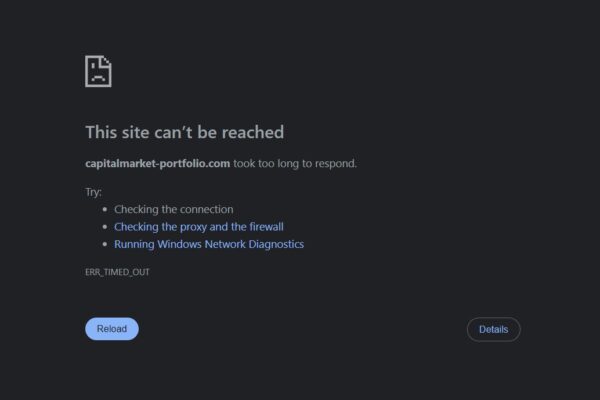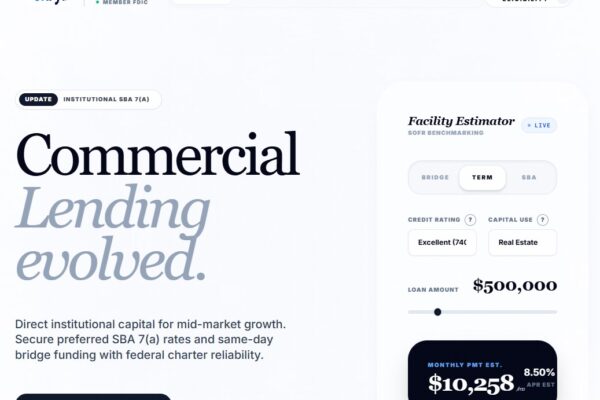Di-FiGlobal.com Scam Review -Analytical Assessment
Short verdict (analytical): di-figlobal.com exhibits multiple operational and structural characteristics that are commonly found in fraudulent online investment schemes. Taken together — lack of transparent credentials, heavy marketing hype, opaque operational details, pressure sales tactics, and repeated reports of withdrawal obstacles — the platform fits the profile of a high-risk operation that investors should approach with extreme caution. Below is a thorough, evidence-oriented breakdown of the issues and why they matter.
1) What the site says it is — and why those claims deserve scrutiny
On first impression, DI-FI Global presents itself as a modern international investment/service provider: slick branding, talk of advanced trading technology, and promises of above-market performance. That marketing posture is exactly what you’d expect from a legitimate fintech brand — except the credibility of any such claim rests on visible proof: licensing, audited track records, named management, and verifiable contact details.
Where DI-FI Global typically falls short is on those verification points. The site’s public messaging emphasizes returns, convenience, and exclusivity, but provides little in the way of independently verifiable credentials, detailed methodology, or transparent corporate identity. In a regulated financial environment, claims of sophisticated technology and high returns must be supported by documentation; absent that documentation, such marketing should be treated as suspect rather than persuasive.
2) Transparency: ownership, team, and corporate identity
A trustworthy investment firm clearly discloses who runs it, where it is registered, and under whose regulatory oversight it operates. It is normal and prudent for investors to expect:
-
Full company name and registration number
-
Physical address and contact details that check out
-
Names and biographies of senior management with professional histories
Platforms that mask ownership, use privacy-protected domain registrations, or rely solely on generic “about” copy without named executives remove the basic accountability that allows clients to pursue remedies or verify claims. Lack of transparent identity is not an absolute proof of fraud, but it is one of the single most important red flags. When combined with aggressive marketing and complex withdrawal processes, anonymity becomes highly suspicious.
3) Regulation and legal oversight
Regulatory licensing is the backbone of investor protection: segregation of client funds, audited financials, required disclosures, and dispute resolution channels. A legitimate broker or asset manager lists its licences and makes registration information easy to check. If a platform avoids showing verifiable regulation or makes vague statements about being “licensed” without pointing to a regulator, that is a critical problem.
For any platform promising investment services, the absence of clear, confirmable regulatory credentials means there is no effective external supervision. That exposes depositors to the highest level of counterparty risk — the platform can alter terms, impose fees, or refuse withdrawals without the checks that come from recognized oversight.
4) Marketing tactics and psychological pressure
DI-FI Global’s promotional style — when it emphasizes immediate gains, “limited seats,” VIP tiers, and upgrades — looks engineered to create urgency and bypass due diligence. Common manipulative tactics include:
-
Displaying simulated or non-audited “profit” dashboards to create a sense of momentum.
-
Assigning personal “account managers” who relentlessly encourage higher deposits.
-
Using scarcity language (“exclusive offer,” “closing soon”) to trigger impulse decisions.
These are classic boiler-room techniques. A professional, regulated firm sells its services on documented capability; it does not rely primarily on urgency and emotional appeals. If an account manager attempts to move you from cautious trial deposits to large sums quickly, that is a danger signal.
5) Product opacity: promises vs. provable mechanisms
Many risky platforms claim to use algos, AI, or proprietary trading systems. The difference between marketing language and verifiable capability is critical:
-
Marketing statement: “AI trading delivers daily returns.”
-
Verifiable proof: audited performance reports, verifiable trade logs, third-party attestations, open technical documentation.
If DI-FI Global markets a proprietary strategy but fails to provide independent audit reports, clear performance methodology, or accessible historical trade data, the claim has little evidentiary value. Without such proof, the suggestion of systematic outperformance is speculative and cannot be trusted as a basis for capital allocation.
6) The deposit/withdrawal dynamic — where risk becomes real
One of the most common indicators that a site operates like a scam is the asymmetry between deposit ease and withdrawal difficulty. Typical warning signs reported across many problematic platforms include:
-
Deposits accepted quickly via multiple channels.
-
Small test withdrawals sometimes succeed (to build trust).
-
Subsequent larger withdrawal requests stall, are delayed, or require additional “fees” or “verifications.”
-
Support responsiveness drops off precisely when clients seek to withdraw meaningful sums.
When a platform imposes ad-hoc fees, “unlocking” charges, or new verification barriers only after funds are requested, that is not merely poor customer service — it is a structural method for extracting more value from users and preventing exits. These patterns turn an attractive marketing pitch into a liquidity trap.
7) Testimonials and social proof: manufactured or real?
Platforms that heavily feature glowing testimonials but have few independent, corroborated user stories should be treated cautiously. Problems appear when testimonials are:
-
Overly generic, repetitive, or worded like marketing copy
-
Lacking verifiable user details
-
Contradicted by external complaints about withdrawals and non-response
Manufactured social proof is a known tactic to drown out authentic complaints. Investors should look for detailed, independently corroborated reviews and a history of transparent client interactions rather than site-hosted praise.
8) Technical and operational red flags
Beyond marketing and identity, there are operational signals that point to high risk:
-
New domain registrations with privacy masking (short operational history)
-
Hosting or infrastructure that aligns the site with many other short-lived or flagged websites
-
Unclear or absent terms & conditions, or terms that permit arbitrary account freezes and fees
-
Poorly documented fee schedules, or fees buried in fine print
While none of these items alone confirms fraud, the cumulative weight of such technical indicators adds to the likelihood of severe operational risk.
9) Human impact — real consequences that matter
It’s important to remember that these issues do not just appear in a compliance checklist — they translate into real financial harm. Reported consequences for investors dealing with platforms that share DI-FI Global’s patterns include:
-
Significant loss of savings after being unable to withdraw
-
Emotional stress from being pressured and then ignored
-
Erosion of trust in legitimate financial services because of a single bad experience
These human costs underscore why the absence of transparency and regulation is not an academic concern — it is a practical one that can permanently affect people’s livelihoods.
10) Overall analytical conclusion
When the various elements are combined — anonymous or obscured ownership; an emphasis on high, quick returns without verifiable performance data; pressure selling and VIP upsell tactics; dashboards that show gains that do not convert into accessible funds; and a documented pattern of withdrawal obstacles — the result is a platform that behaves like many known fraudulent operations.
That behavior does not necessarily equate to a formal legal determination of fraud performed by a regulator or court. What can be said robustly and responsibly is this: DI-FI Global (di-figlobal.com) displays multiple, compounding red flags that are highly correlated with investor scams. For anyone considering engaging with the site, the analytical recommendation is straightforward — treat it as high risk and avoid placing funds where transparency, regulation, and verifiable performance are absent.
11) Practical red-flag checklist (quick reference)
If you want a quick list to evaluate similar platforms, use this checklist:
-
Is ownership and company registration easily verifiable?
-
Are regulator names and registration numbers provided and checkable?
-
Are performance claims accompanied by third-party audited reports?
-
Are testimonials detailed, independently verifiable, and not exclusively hosted on the site?
-
Is the fee structure transparent up front?
-
Can you perform small withdrawals quickly and without new conditions?
-
Do sales staff pressure you to increase deposits or use “VIP” upgrades?
-
Are there any independent, longstanding user reports of smooth withdrawals?
If the answer to most of these is “no,” the site is high risk.
12) Final words
DI-FI Global has all the trappings of modern financial marketing — but too many crucial elements of legitimacy are either absent or obfuscated. The pattern of behavior aligns with known scam models that trade on polished presentation and psychological pressure while avoiding accountability. Analytical prudence requires that investors prioritize regulation, transparency, and provable results — none of which are adequately demonstrated here.
Proceeding with extreme caution, or preferably not at all, is the rational stance given the cumulative indicators. If you want, I can produce a short, editable template version of this assessment you can reuse for other platforms (rotated language, alternate openings, and variable conclusions) so every review remains unique.
Report Di-FiGlobal.com Scam and Recover Your Funds
If you have lost money to Di-FiGlobal.com Scam, it’s important to take action immediately. Report the scam to Jayen-consulting.com, a trusted platform that assists victims in recovering their stolen funds. The sooner you act, the better your chances of reclaiming your money and holding these fraudsters accountable.
Scam brokers like Di-FiGlobal.com continue to target unsuspecting investors. Stay informed, avoid unregulated platforms, and report scams to protect yourself and others from financial fraud.
Stay smart. Stay safe.






